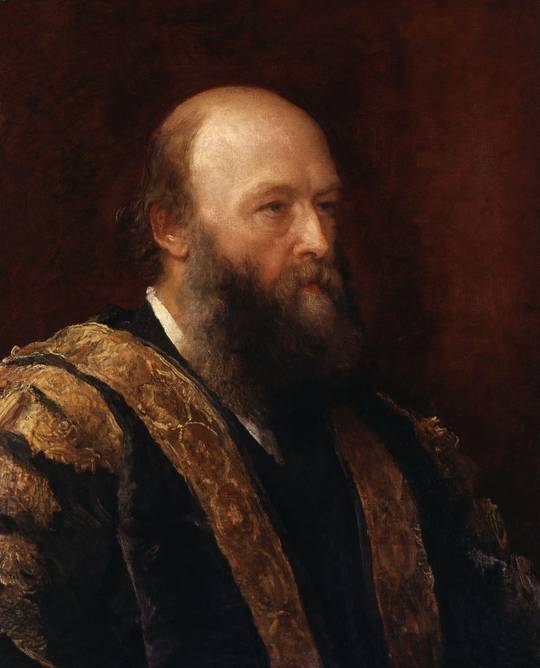Salisbury (1830-1903) holds the post-Liverpool prime ministerial longevity record, at a total of 13 years and 8 months, concentrated into 17 years, making him the dominant political figure during that period. For most of that time, he also held the Foreign Secretaryship, while Stafford Northcote, 1st Earl of Iddesleigh (1818-87), W. H. Smith (1825-91) and Arthur Balfour nominally held the office of First Lord of the Treasury, the latter two serving in the Commons.
Uniquely among prime ministers, Salisbury had set out a clearly defined political philosophy, in a series of lengthy review articles in the 1860s, which included studies of the younger Pitt and Castlereagh (but alas not Liverpool). He then took the India Office in Derby’s last administration of 1866 but resigned after 9 months in protest at the Second Reform Bill. This experience and watching the electoral and parliamentary successes of Disraeli, convinced him over the next decade that advancing democracy imposed severe restrictions on the policies that could be successfully followed, at least domestically.
Salisbury returned to the India Office in 1874, transitioning to the Foreign Office in 1878. When Disraeli died in 1881, he and Northcote succeeded him jointly in the Conservative leadership, but over the next four years it became obvious that Salisbury was the dominant partner. His masterly negotiation of the Third Reform Act in 1883-84 secured his position as prime minister when Gladstone resigned in 1885.
Salisbury was a truly superior foreign policy prime minister. He expanded the Empire, acquiring territories of 6 million square miles containing 100 million people, more than any other prime minister except the elder Pitt. In Europe, he rejected close entangling alliances, attempting to work in a balanced manner with the major European autocracies as Castlereagh had. Only the Boer War, where Imperial overstretch caused the most serious conflict since the Crimean War, spotted his record.
Domestically, Salisbury was modestly successful. He carried out a reorganization of local government, but his domestic reforms were often in tension with his fundamental beliefs, as in his creation of the leftist London County Council in 1888. In Ireland, he and Balfour followed a policy of “killing Home Rule by kindness” which did not achieve its central objective, but substantially improved Irish conditions.
Salisbury’s major missed opportunity was in economics. Already by 1885, Britain’s relative industrial decline was apparent and the rising protectionism of foreign countries was obvious. Salisbury had no intellectual commitment to unilateral free trade, so an Imperial Preference scheme such as proposed by Joseph Chamberlain (1836-1914) in 1903 could have emerged in 1895 or even in 1887, when Salisbury enjoyed a safe majority and could have pushed it through. Salisbury’s lack of leadership in this area represented a missed opportunity, though his additions to the Empire at least provided Britain with cheap raw materials.
Nevertheless overall, Salisbury was the best of Queen Victoria’s prime ministers, in an environment that was becoming somewhat more difficult. He should rank on the edge of the Top Ten, or just below
